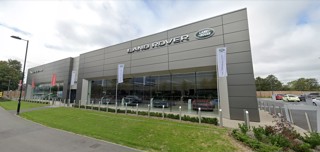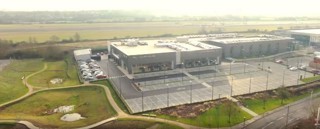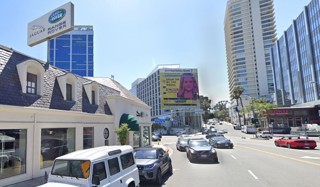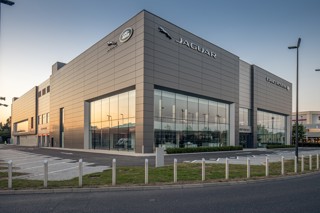Jaguar Land Rover (JLR) will transform Jaguar into a purely electric vehicle (EV) brand by 2025 and expects 60% of new Land Rovers to be zero-emissions capable by 2030.
The Tata-owned British car manufacturer also revealed its plan to establish two clear, unique personalities for the two brands as it announced it would to embark on a process of ‘rightsizing, repurposing and reorganising’ through a new ‘Reimagine’ strategy.
A statement issued by JLR this morning (February 15) said that it aims be “one of the most profitable luxury manufacturers in the world” through the new direction, stating: “Jaguar Land Rover is on a path towards double-digit EBIT margins and positive cash flow, with an ambition to achieve positive cash net-of-debt by 2025.”
Jaguar Land Rover (JLR) will transform Jaguar into a purely electric vehicle (EV) brand by 2025 and expects 60% of new Land Rovers to be zero-emissions capable by 2030.
The Tata-owned British car manufacturer also revealed its plan to establish two clear, unique personalities for the two brands as it announced it would to embark on a process of ‘rightsizing, repurposing and reorganising’ through a new ‘Reimagine’ strategy.
A statement issued by JLR this morning (February 15) said that it aims be “one of the most profitable luxury manufacturers in the world” through the new direction, stating: “Jaguar Land Rover is on a path towards double-digit EBIT margins and positive cash flow, with an ambition to achieve positive cash net-of-debt by 2025.”
New JLR chief executive officer, Thierry Bolloré, revealed details of the Reimagine strategy.
The strategy will see Land Rover welcome six pure electric variants over the next five years, the first of which will arrive in 2024.
Jaguar, meanwhile, will have undergone “a renaissance” to emerge as a pure electric luxury brand by the middle of the decade, the OEM said.
Commenting on a potential new direction for the Jaguar range's flagship luxury saloon, it added: “Although the nameplate may be retained, the planned Jaguar XJ replacement will not form part of the line-up, as the brand looks to realise its unique potential.”
JLR will offer pure electric power, nameplate by nameplate, by 2030 and has committed to phasing out diesel powertrains by 2026.
As part of the shift to a new EV-led product line-up JLR said that its global manufacturing and assembly footprint would be to be retained, rightsized, repurposed and reorganised.
It added that collaborations and knowledge-sharing with industry leaders, in particular from within the wider Tata Group, would allow the company to explore potential synergies on clean energy, connected services, data and software development leadership.
Bolloré said: “We have so many ingredients from within. It is a unique opportunity.
“Others have to rely solely on external partnerships and compromise, but we have frictionless access that will allow us to lean forward with confidence and at speed.”
The path to JLR’s reimagined future will be leveraged by annual investments of over £2.5bn in electrification technologies and the development of connected services to enhance the journey, alongside data-centric technologies that will further improve their ownership ecosystem, it said.
Services including the Pivotal subscription model, which JLR said had grown 750% during the fiscal year, will now be rolled out to other markets following successful launches in the UK.
Bolloré said: “As a human-centred company, we can, and will, move much faster and with clear purpose of not just reimagining modern luxury but defining it for two distinct brands.
“Brands that present emotionally unique designs, pieces of art if you like, but all with connected technologies and responsible materials that collectively set new standards in ownership. We are reimagining a new modern luxury by design.”
Commenting on JLR's plans this morning, Autocar editorial director, Jim Holder, speculated that the Jaguar and Land Rover brand's move towards electrification could spell a move away from its established premium sector roots.
Holder said: “The standout news from today's announcement is the commitment to reimagine the Jaguar brand, both by making it an all-electric marque in the vein of Tesla from 2025, but also by hinting that it will be pitched above its current position and traditional customer base as a premium brand, and instead aim higher, towards the luxury end of the market, where the likes of Aston Martin and Bentley currently sit.
"Making that shift in the minds of buyers will be incredibly difficult and hinge on its new cars being class-leading, but if it can pull it off then the prospect of making higher margins on fewer sales should be enough to sustain a brand that in its current form is ailing to the point of struggling to justify its existence."
JLR’s retailers were able to outpace a market down by 29.4% in a COVID-impacted 2020.
Land Rover franchisees helped the OEM to 58,505 registrations last year, down 23.6% on 2019’s 76,546 as the new Defender 4x4 reached showrooms.
Jaguar retailers narrowly beat the market, meanwhile, with a 29.3% decline to 25,513 registrations (2019: 36,069).
Login to continue reading
Or register with AM-online to keep up to date with the latest UK automotive retail industry news and insight.



















Login to comment
Comments
No comments have been made yet.